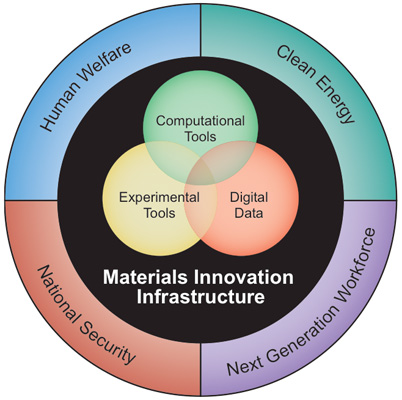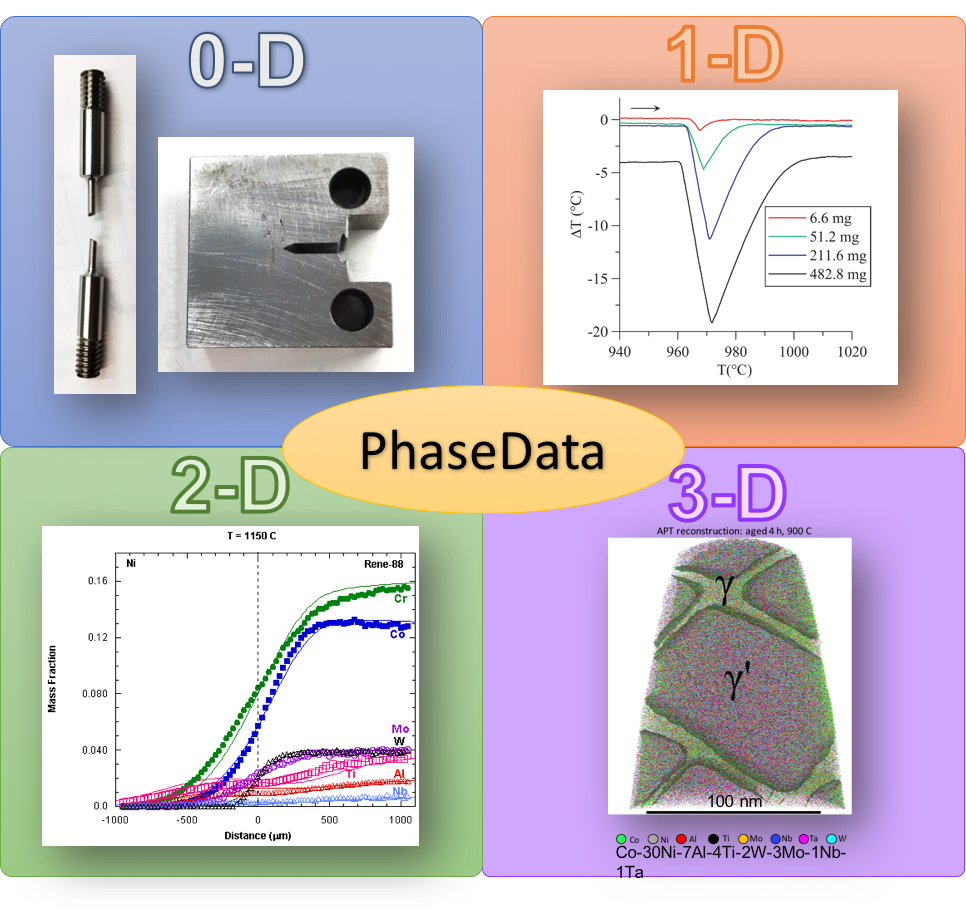
Materials Data Curation System

Overview
An essential part of the MGI is the development of phase-based data repository. Phase-based data are important for many applications, including the development of CALPHAD-based multicomponent databases. The phase-based data include zero-dimensional, one-dimensional, two-dimensional, and three-dimensional data. Examples of some of the phase-data included are phase transformation temperatures (e.g. melting, solidus, solvus), lattice parameters, thermal expansion, elastic constants, and diffusion coefficients and compositions profiles. These data are reported as functions of composition, temperature and/or pressure.
This repository consists of four data sources:
- Curated experimental and computational multicomponent alloy data in support of the development Co-based superalloys. Currently the data are focus on diffusion data and transition temperatures. These data are curated using the NIST Materials Data Curation System.This collection is being developed in conjunction with CHiMaD.
- The previous NIST Diffusion Data Center data is now available through this site by searching using DiffusionDataCenter schema. The NIST Diffusion Data Center collection includes collection of over 14,100 international papers, theses, and government reports on diffusion published before 1980. John Manning and Daniel Butrymowicz developed the original collection and reviewed all of the papers in the collection. These papers are now searchable online via this site based on author and diffusion system. This resource is a useful and functional data source for NIST and the scientific community, as it provides a means to search the diffusion literature before 1980, a capability that is virtually nonexistent with other electronic databases, particularly when searching for non-archival journal papers. Some of the collected papers that are unique to this collection include English translations of Japanese and Russian articles and government issued reports.
- Thermodynamic Research Center Data provides access to thermophysical property data with a focus on unary, binary, and ternary metal systems through a free online web application and associated API. All data are from original experimental publications and include full provenance and critically evaluated uncertainty
- Self diffusion and impurity diffusion coefficient data (experimental and computational) are searchable via the periodic table.
